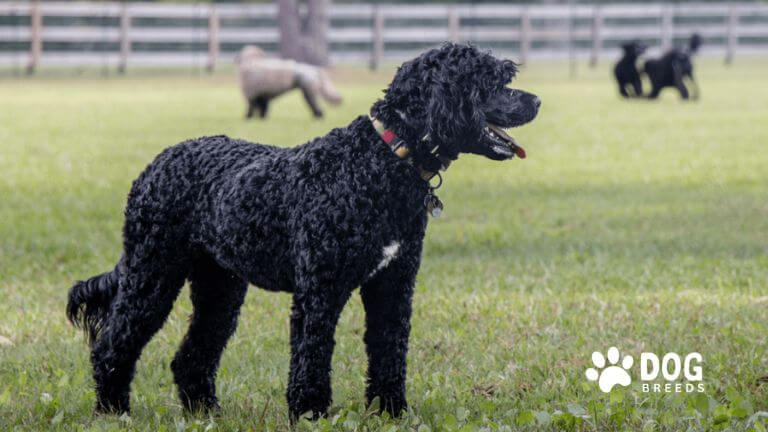German Shorthaired Pointer Dog Breed – Traits & Care Guide
The German Shorthaired Pointer (GSP) is a versatile hunting dog known for its athleticism, intelligence, and adaptability. This breed, originating in Germany during the 19th century, was developed to be a capable all-around hunting companion. With its striking appearance and friendly demeanor, the GSP has become a favorite for hunters and families alike.
Breed Overview
- Size: Medium to large. Males: 55–70 pounds, Females: 45–60 pounds.
- Height: Males: 23–25 inches, Females: 21–23 inches.
- Lifespan: 10–14 years.
- Group Classification: Sporting Group (AKC).
- Coat: Short, dense, and water-resistant; color combinations include liver, liver and white, or roan.

History and Purpose
The GSP was bred by German hunters who sought a multipurpose dog for pointing, retrieving, and tracking game. Combining traits from Spanish Pointers and local German breeds, the GSP became a staple in hunting circles. Its keen sense of smell and stamina make it a reliable choice for various terrains and game types.
Personality and Temperament
The German Shorthaired Pointer is affectionate, energetic, and highly intelligent. These dogs thrive on companionship and bond closely with their families. They are playful with children and generally get along with other pets if properly socialized.
- Energy Levels: High; requires ample daily exercise.
- Intelligence: Quick learners but may require consistent training due to their independence.
- Social Behavior: Friendly with strangers but can be protective. Early socialization is key.
Care Needs
Exercise
The GSP is a high-energy breed that needs daily physical and mental stimulation.
- Recommended Activities: Running, hiking, swimming, and agility training.
- Duration: At least 1–2 hours of exercise daily.
- Games: Fetch, scent work, and hide-and-seek are excellent for keeping them engaged.
Training
These dogs are eager to learn but can be headstrong.
- Trainability: High, especially with positive reinforcement techniques.
- Common Challenges: They may become bored with repetitive tasks.
- Tips: Begin training early, focus on consistency, and include mental challenges like puzzle toys.
Grooming
The GSP’s coat is low-maintenance but requires regular care.
- Brushing: Weekly brushing to remove loose hair.
- Bathing: Occasional or as needed after outdoor adventures.
- Nail Care: Trim nails every 4–6 weeks to prevent overgrowth.
- Ears: Check and clean weekly to prevent infections, especially after swimming.
Health Considerations
- Common Health Issues:
- Hip dysplasia.
- Bloat (gastric torsion).
- Progressive retinal atrophy.
- Ear infections due to their active lifestyle.
- Preventative Measures:
- Regular vet check-ups.
- A high-quality diet tailored to active breeds.
- Avoid overfeeding to reduce the risk of bloat.
- Genetic Testing: Ask breeders about health screenings for hereditary conditions.
Living Conditions
The German Shorthaired Pointer is best suited for homes with ample space.
- Environment: Ideally, homes with a fenced yard.
- Adaptability: While they can adjust to apartment living, this requires a significant commitment to exercise.
- Urban/Suburban Life: Thrives in suburban or rural areas where they have room to roam.
Tips for Potential Owners
- For First-Time Owners: Be prepared for their energy and training needs.
- Socialization: Introduce them to various environments, people, and pets early.
- Diet: Feed high-protein kibble designed for active breeds, divided into 2–3 smaller meals to prevent bloat.
- Lifestyle: Best for active individuals or families who enjoy outdoor activities.
Additional Resources
- American Kennel Club (AKC): German Shorthaired Pointer
- Adoption: Check local rescues or breed-specific organizations like the German Shorthaired Pointer Rescue.
- Training Tips: Explore resources on positive reinforcement techniques for sporting dogs.
Fun Facts
- GSPs are excellent swimmers, thanks to their webbed feet.
- They are sometimes referred to as “Velcro dogs” because of their love for staying close to their owners.
The German Shorthaired Pointer is an intelligent, versatile, and loyal breed that thrives in active households. With proper care, training, and love, this breed can be a lifelong companion and outdoor adventure partner.
Conclusion
In conclusion, the German Shorthaired Pointer is a remarkable dog breed that excels in versatility, intelligence, and companionship. Its rich history as a hunting dog, combined with its affectionate and energetic nature, makes it an excellent choice for active families and outdoor enthusiasts. While the breed requires significant exercise, consistent training, and proper care, the rewards are immense—a loyal, capable, and loving pet that thrives in a dynamic environment.
For those considering adopting a German Shorthaired Pointer, it’s essential to be prepared for their high energy levels and commitment to their well-being. With the right attention, this breed will prove to be an irreplaceable companion, whether in the field or at home.
There are plenty of dog breeds to suit all kinds of lifestyles and homes. With a little research, you can find your next best friend!
Related Dog Breeds:
FAQs
Is a German Shorthaired Pointer a good family dog?
Yes, the German Shorthaired Pointer (GSP) is an excellent family dog. They are affectionate, playful, and great with children when properly socialized. Their loyal and people-oriented nature makes them thrive in a family setting. However, their high energy levels mean they are best suited to active families who can meet their exercise needs.
What are the negatives of German Shorthaired Pointers?
The main drawbacks of GSPs include:
- High energy levels: They require daily vigorous exercise.
- Independence: They can be strong-willed during training if not handled consistently.
- Separation anxiety: They do not do well when left alone for long periods.
- Shedding: Despite their short coat, they shed year-round.
- Not suited for sedentary lifestyles: They need active engagement and regular stimulation.
Do German pointers bark a lot?
German Shorthaired Pointers are not excessive barkers but will bark to alert their owners to unusual situations. Without sufficient exercise or stimulation, they may bark out of boredom or frustration.
What is the behavior of a German pointer?
German pointers are intelligent, energetic, and eager to please. They are playful, friendly, and sociable with both people and other pets. They excel at outdoor activities and are known for their strong hunting instincts. Proper socialization ensures they adapt well to various situations.
Are German Pointers aggressive?
No, German pointers are not typically aggressive. They are friendly and sociable but may become protective of their family if they sense a threat. Early socialization and training minimize any potential territorial or overprotective behaviors.
What dog barks the most?
Breeds known for frequent barking include Beagles, Chihuahuas, and Jack Russell Terriers. German Shorthaired Pointers do not fall into this category unless they lack exercise or stimulation.
Can a pointer be a house dog?
Yes, German Shorthaired Pointers can be house dogs if their exercise and mental stimulation needs are met. They form close bonds with their families and enjoy being part of household activities. A secure, fenced yard is beneficial for their energy release.
Can German pointers be left alone?
GSPs do not handle being left alone for extended periods. They are social dogs and may develop separation anxiety, leading to destructive behaviors. If left alone, ensure they have toys and activities to keep them engaged.
What is the leading cause of death in German Shorthaired Pointers?
The leading cause of death in GSPs is cancer, particularly hemangiosarcoma, which affects the blood vessels. Other common causes include heart disease and bloat (gastric torsion). Regular vet check-ups and a healthy lifestyle can help mitigate risks.
Are German pointers easy to train?
Yes, GSPs are intelligent and eager to please, making them relatively easy to train. They respond well to positive reinforcement methods. However, their independent streak requires consistent and patient training.
Can a GSP be a house dog?
Absolutely. With proper exercise and training, GSPs adapt well to indoor living. They enjoy spending time with their family and can settle comfortably in a home environment.
Are German pointers smart?
Yes, German pointers are highly intelligent. They rank among the most trainable breeds due to their quick learning ability and eagerness to work. Their intelligence makes them excellent in various activities, including obedience, agility, and hunting tasks.
- Why Are Dalmatians Not Popular? Uncovering the Truth Behind the Rarity of This Iconic Breed - April 16, 2025
- Top 15 Chinese Dog Breeds: Discover the Best Dogs from China - April 14, 2025
- Dalmatian Dog Breed: History, Care, Personality & Health - April 3, 2025







